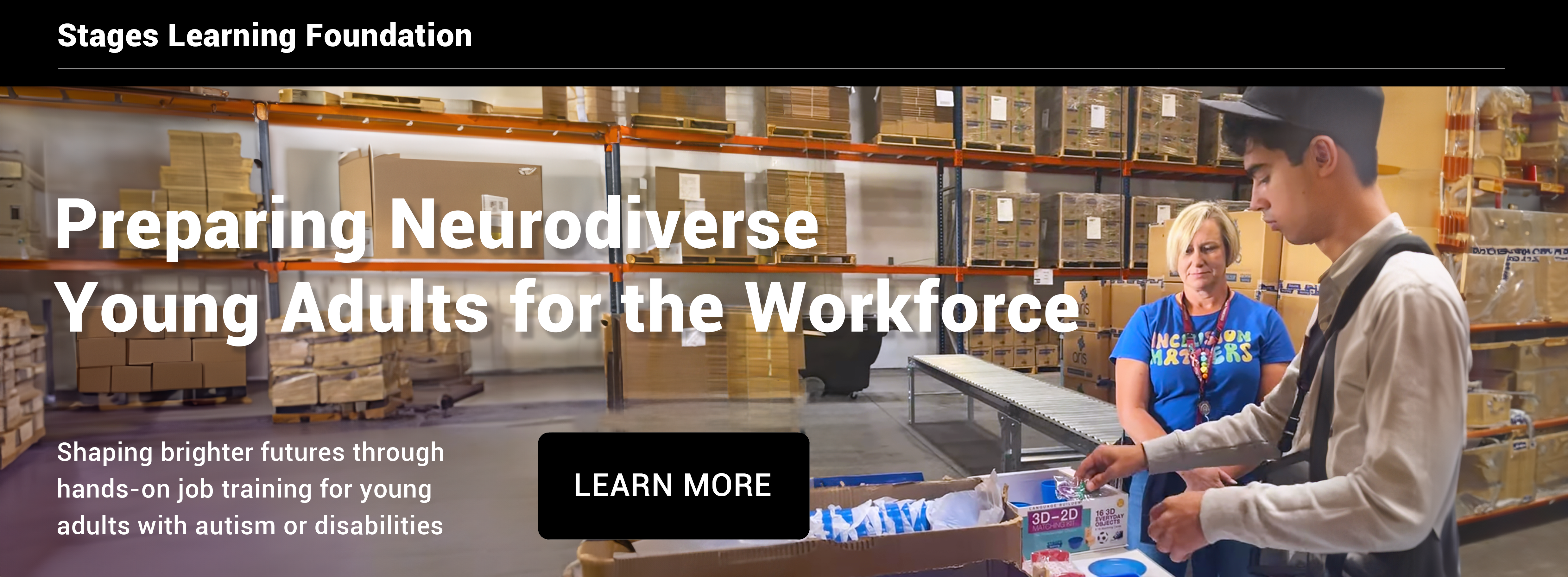Benefits of Online College for Students With Autism
8 Reasons to Consider Distance Learning and 8 Great College Choices for Those on the Spectrum
Online college can provide many unique benefits for students on the autism spectrum due to the level of flexibility it offers. Remote learning, for example, allows learners to pursue other personal interests in an area that piques their passions while also reducing anxiety, providing an accommodating schedule, and encouraging the development of personal responsibility, independent learning, planning, problem-solving, organization, and executive functioning skills.
Other advantages of online learning include:
- Limiting distractions
- Completing assignments in a familiar environment
- Reducing the duration of social interactions with others
Although there are numerous aspects to consider when deciding between online and in-person options for college, remote learning can provide many benefits for those with autism.
Advantages of an Online College Experience
After high school, it is not uncommon for students to become easily overwhelmed by the number of opportunities that can be pursued. While college is often a popular choice, attending large universities can present a number of unique challenges for learners with autism. Considering this, remote learning may be a viable option as it allows students to further their education in an accommodating environment that reduces social anxiety, limits sensory input, provides flexibility in scheduling, and piques the natural interests of the learner.
There are multiple reasons why online learning can be ideal for college students, and below are some of the top reasons why those on the autism spectrum may wish to consider distance options for postsecondary education.
1. Modifying teaching methods and providing accommodations
Instructors can adapt their teaching methods to accommodate students with disabilities and autism using an online format. Additionally, many professors are available to provide support between classes by phone or email.
According to the Americans with Disabilities Act of 1990, “postsecondary institutions are responsible for providing necessary accommodations when a student discloses a disability.”1 Helpful accommodations and support strategies for learners with autism may include:
- Extra time on tests and exams
- Early course registration (in some cases)
- Options for requesting a notetaker, captionist, or interpreter
- Additional support outside of class meeting times (if needed)
- Access to counseling services, library resources, and online tutoring
- Alternative media, assistive technology, and modified testing environments
- Course substitutions and approval for disability-related absences
These accommodations are provided through a university’s office of disability, and students may request reasonable accommodations at any time.2
2. Providing flexibility with scheduling
The flexibility provided by online college allows students to pursue their personal goals, interests, and passions outside of the academic environment. While working towards their degree, for example, one may also wish to obtain volunteer experience, an internship, or a part-time job. Remote learning gives students the flexibility and freedom to participate in support groups, therapy sessions, and other daily commitments they have throughout the week (which might, otherwise, be difficult to fit into a typical on-campus class schedule for college students who attend full-time).
3. Piquing the learner’s inner curiosity
Curiosity in the learning process is vital to student engagement, and excitement about new subjects can be enhanced as personal interests are brought to life both inside and outside of the classroom environment. Remote learning allows students to work at their own pace–at least to a degree–by providing flexibility in scheduling options and a natural pacing of assignments throughout the semester.3 In this way, students can pursue other interests outside of their college studies more easily.

4. Creating a more relaxed and sensory-friendly environment
Distance learning also permits students to complete their coursework in a relaxed environment.4 Bright lights, loud noises, and strong smells–for instance–can be kept to a minimum for those who are sensitive to sensory input. This setup is often less stimulating and overwhelming for students with autism and can lead to fewer meltdowns.
Research indicates that those on the spectrum “might find it sensorially overloading to go to a physical location that has… too much noise or some kind of lighting that’s problematic, such as fluorescent lights, recessed lighting fixtures, even just temperature control.”5 As a result, online options for college can be beneficial because the environment is able to be controlled, adapted, and modified more easily.
5. Limiting classroom distractions and providing familiarity
Likewise, distractions can be greatly reduced–and, in some cases, nearly eliminated–when completing college in an online format. The frequency and duration of direct social interactions with peers are lessened when students opt for distance learning, and academic studies can take place in a familiar setting at home. Modifications for testing and exams can be made in many cases as well to provide fewer distractions across the board.
6. Reducing stress levels and the frequency of social interactions
Anxiety and stress levels can be minimized in an online format since distance learning may help quell feelings of overwhelm related to regularly interacting with others. It is said that learning increases as stress decreases.3
Moreover, reduced stress and anxiety can also calm sensory systems throughout the body, leading to general feelings of peace, tranquility, and stillness (rather than over-stimulation, meltdowns, and hyperactivity).
7. Taking ownership of the learning process
Students learn to take ownership of the learning process and are encouraged to become self-sufficient in teaching themselves new material when enrolled in online classes.3&4 These skills are important as they prepare students for developing independent living, problem-solving, personal responsibility, self-advocacy, decision-making, and other crucial life skills that may, otherwise, be challenging.
If an online course is offered asynchronously (meaning that there are no pre-set class meeting times), then assignments can be completed during a time that works best for the student. Typically, assignments are due by a deadline (such as at the end of each week), and learners must develop effective organization, problem-solving, and planning skills to complete course content within that timeline.

8. Accommodating various learning styles
Coursework can often be completed in a way that complements one’s learning style, and students may choose to work, study, and learn in a structured environment that is suited to accommodate their personal needs.4 Online learning supports making modifications, adaptations, and accommodations to the academic setting in order to tailor the environment to the individual needs of each learner.
Furthermore, online discussion boards are an easy way for students with autism to interact, communicate, and participate with their peers. Because responses are usually typed, learners who find written language easier than spoken communication can benefit.
Today, distance learning is no longer the exception to the rule; it is now commonplace, mainstream, and a very viable option for learners on the autism spectrum who have unique academic needs.3 Many families have even decided to start homeschooling their school-aged students on the autism spectrum for the same reasons that online college is a good fit. In fact, publicly-funded online K-12 programs are available in most states, and–as online education becomes more widely accepted as a standard for education–more students are likely to pursue this option.

A Note on Synchronous and Asynchronous Online Classes
Remote learning is flexible, and it often provides students with an opportunity to communicate virtually through discussion boards. Class meeting times are set in advance–if the course is synchronous–or not scheduled to meet at a specific time–if the course is asynchronous.
Synchronous courses have meeting times that are firm and pre-established at the beginning of the semester so they are not able to be easily rescheduled.6 However, courses offered in an asynchronous format do not take place during pre-scheduled meeting times, and students can complete weekly coursework at a time that fits their personal needs.
While online learning and class lectures vary from class to class, universities typically offer a mix of morning, afternoon, and evening offerings to accommodate the schedules of each student. Asynchronous courses allow for the most flexibility because there are no recurring lecture times throughout the week, and coursework can be completed during times that work best for the learner.
What are some other benefits of online learning? Do you know any students who have benefited from distance learning?
References
- https://www.apa.org/pi/disability/dart/toolkit-three
- https://thebestschools.org/resources/autistic-student-guide-to-online-college/
- https://www.pittsburghparent.com/advantages-of-online-learning-for-some-students-on-the-autism-spectrum/
- https://www.rtor.org/2021/04/16/the-benefits-of-online-schooling-for-students-with-autism
- https://www.edsurge.com/news/2021-08-04-the-unexpected-benefits-of-remote-learning-for-neurodivergent-students
- https://online.osu.edu/resources/learn/whats-difference-between-asynchronous-and-synchronous-learning
For more information about the best college programs for students with autism, check out our free downloadable handout here!

Kenna McEvoy
Kenna has a background working with children on the autism spectrum and enjoys supporting, encouraging, and motivating others to reach their full potential. She holds a bachelor's degree with graduate-level coursework in applied behavior analysis and autism spectrum disorders. During her experience as a direct therapist for children on the autism spectrum, she developed a passion for advocating for the health and well-being of those she serves in the areas of behavior change, parenting, education, and medical/mental health.





